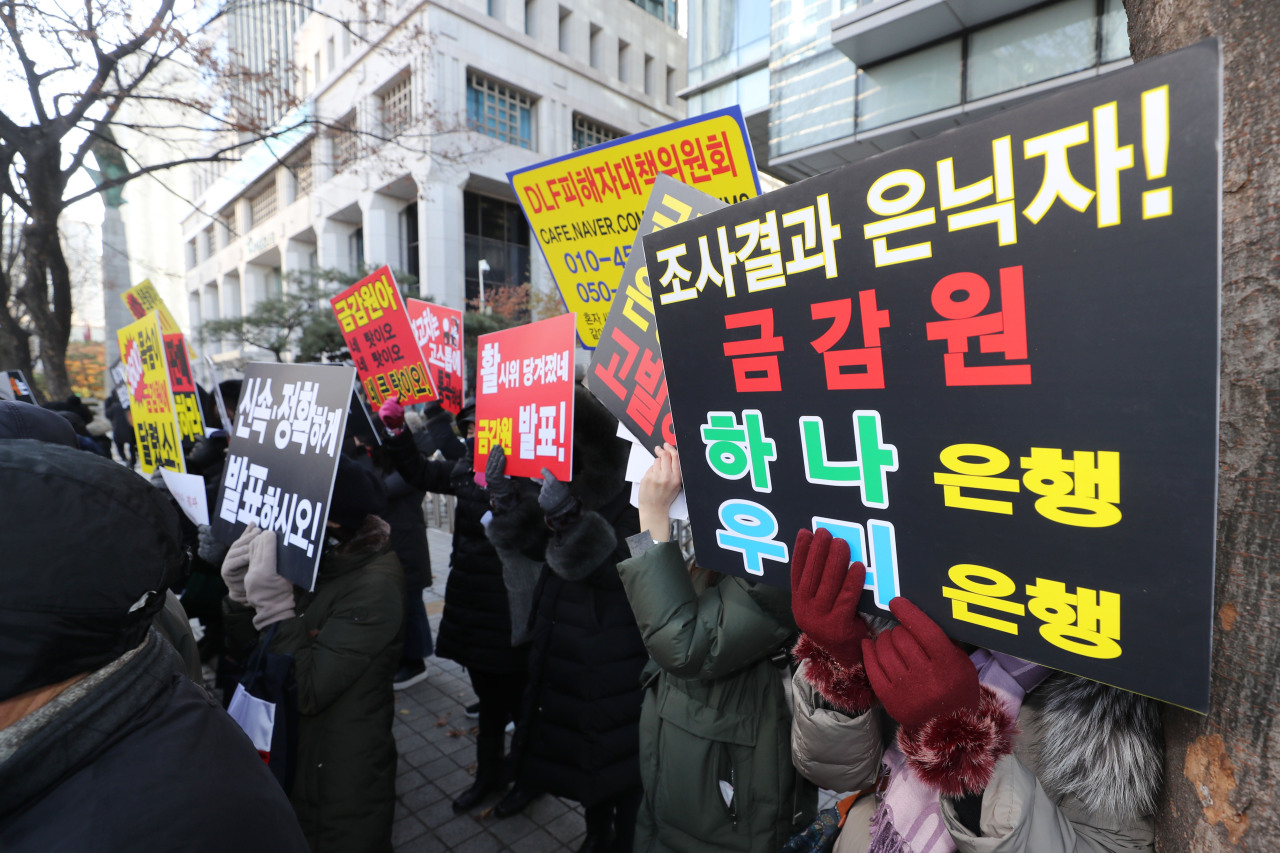The financial watchdog on Thursday directed local banks to compensate up to 80 percent of the losses suffered by customers due to their controversial sale of derivative-linked funds earlier this year.
The Financial Supervisory Service held its dispute settlement committee meeting to review six representative cases of investor damages due to miselling -- three from Woori Bank and three from KEB Hana Bank.
“In the past cases of misselling (of financial products), the compensation rate was usually evaluated upon the liability of the sales person in charge,” the FSS said in a release.
“(But) in the latest dispute settlement, we have taken into account that the (banks’) headquarters’ excessive push for profits and lack of internal control led to these mass damages.”

Victims of the controversial derivative-linked financial products hold a protest in front of the Financial Supervisory Service building in Yeouido on Thursday. (Yonhap)
Facing the highest compensation rate was Woori Bank, which will have to pay 80 percent of the damages to an unexperienced 79-year-old with symptoms of dementia and hearing problems. The bank will also have to pay 75 percent of the losses to a housewife in her 60s for misguiding her into believing that its DLF product was safe from loss of the principal amount.
KEB Hana Bank is facing a maximum of 65 percent compensation for failing to properly explaining the concept of the risk-inclined underlying assets.
Following the FSS’ announcement, both banks immediately issued a statement, saying that they will accept the decision and fully cooperate for a swift compensation process.
The number of DLF-related petitions submitted to the FSS as of end-November stood at 276, out of which 210 were confirmed as cases of actual financial damages.
The FSS will deliver the six model cases of arbitration to each bank or brokerage involved in the DLF scandal, recommending that they seek a self-adjusting solution for the rest of the cases.
Should investors or banks object to their arbitration result, they may then file a dispute settlement to the watchdog, officials said.
By Bae Hyun-jung (tellme@heraldcorp.com)






![[Graphic News] More Koreans say they plan long-distance trips this year](http://res.heraldm.com/phpwas/restmb_idxmake.php?idx=645&simg=/content/image/2024/04/17/20240417050828_0.gif&u=)